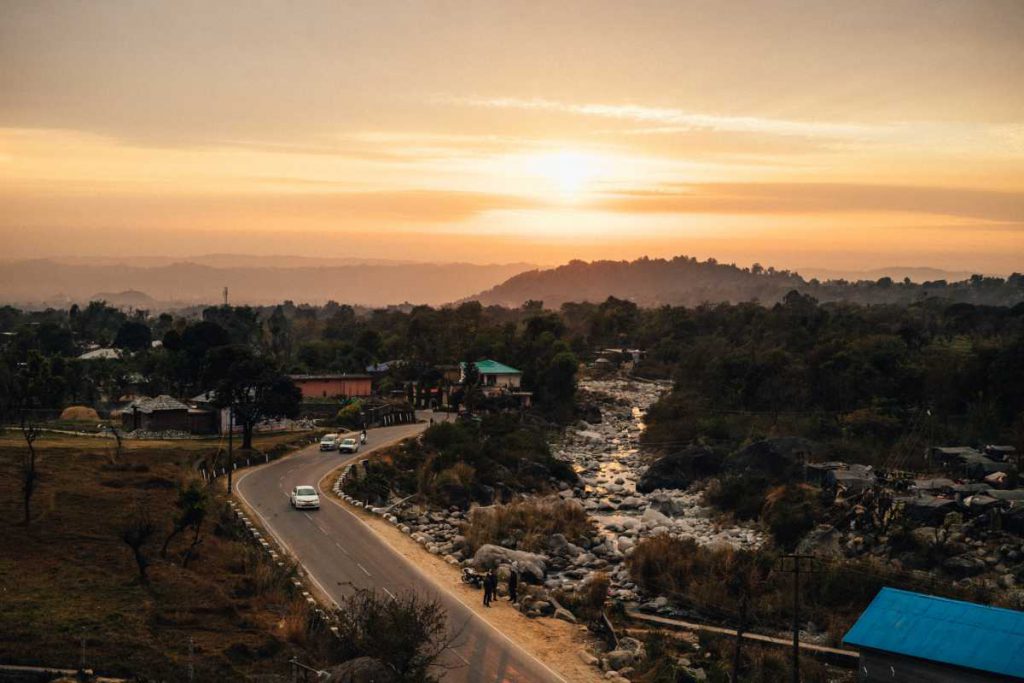Plastic waste is a scourge on the planet and there are new solutions always in the work. Even though many developed nations recycle, the impact of plastic pollution is still staggering. Reusing plastic, dissolving plastic, and even breeding certain fungus to eat plastic are growing tactics, however, one, in particular, is starting to take shape all over the world: driving on plastic.
There is an opportunity for more sustainability in the paving and fixing of roads using otherwise wasteful and unused material. By incorporating plastic waste into the tarmac concrete formula companies in India, South Africa, and even the UK have developed a technique to create more durable roads.

The method both cuts the number of fossil fuel emissions typically used to create asphalt while simultaneously extending its usability. If properly incorporated cities and communities the world over could save time, money and help protect the environment. Plastic waste is an almost unlimited resource currently that otherwise only costs society more money shipping to landfills.
In the UK, a company called MacRebur was inspired when the CEO, Toby McCartney witnessed an Indian landfill site using melted plastic to fit potholes. The method essentially involves replacing bitumen (the black goo extracted from crude oil) with heated plastic, then as normal mixing with gravel or limestone, resulting in a binding and firm asphalt. McCartney claims the formula to be 60% more durable and can last up to 3 times longer than traditional road paving.
Not every plastic can be used in the process but a majority of it can including some, such as black plastic, that is not as easy to break down or recycle. It’s a strange and fortunate benefit that wasteful plastics actually contain elements of elasticity that make these new roads more flexible and more resistant to water damage. Once the plastic is incorporated the resulting material even looks the same as regular roads.
Although western countries such as the UK are starting to see the light, in India this new method has been incorporated for decades. Until fairly recently 50% of roads in India were not paved, now with plastic infused asphalt, more than 14,000 miles of road have been paved with this new material, absorbing plastic waste and saving money on material.

It is hard to judge the long-term effects for a reusable method that is still in its early stages relatively speaking as there is no long-term data to consult. The clearest concern is microplastics being put into the ground, however, their harmful effect is still debatable and is entering the earth’s ground, water, and potentially even air regardless, especially at our current rate of pollution. With coordinated effort in plastic roads, the issue of microplastics becomes better monitored meaning our ability to come up with a solution becomes easier than if we let the issue run untethered.
Another is the heating of plastic and its harmful emissions, however, R. Vasudevan – professor at the Thiagarajar College of Engineering in Madurai – has created a technique that requires melting plastic at a temperature of 170C, a much safer limit that produces far less gas. McCartney too calculated that by burning plastic at a safe temperature you reduce CO2 emissions twofold from the regular petroleum burning of bitumen.
The technique is not perfected and there are certainly roadblocks ahead but its promising start and unmistakable practicality make it a novel new way of confronting the plastic waste crises we currently face. As many new endeavors, still in their phases of discovery, the cost elements, safety, and long-term effectiveness are much to be weighed, however, as time goes on and improvements made this could well be a far simpler and sustainable road forward.